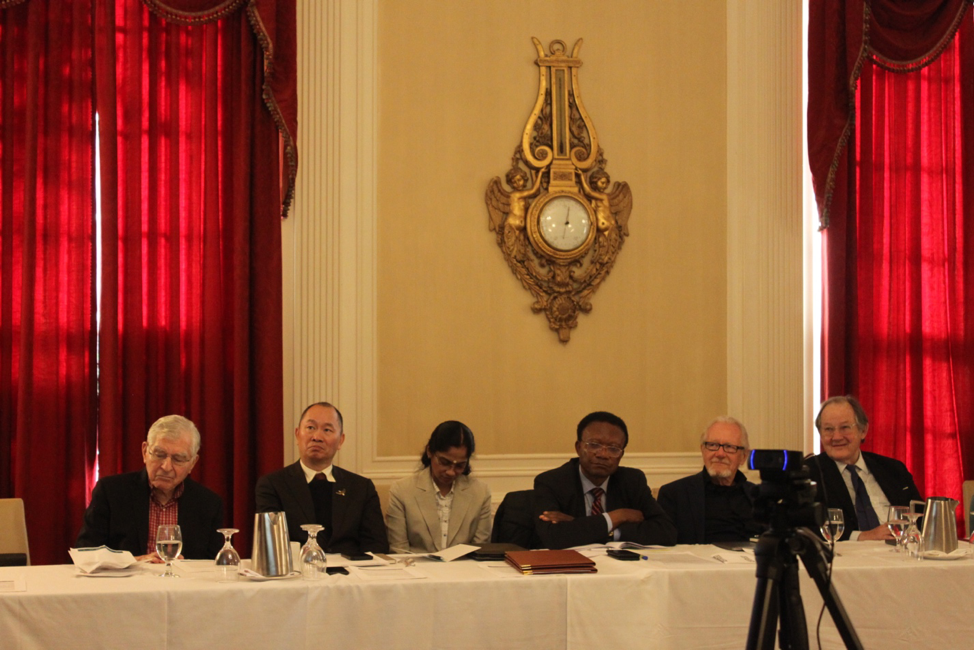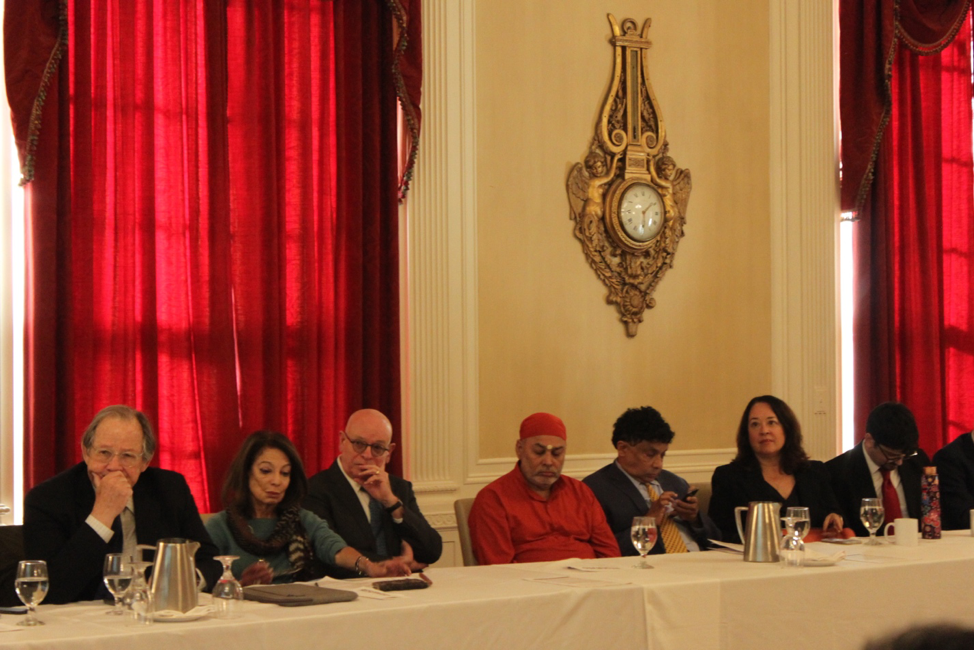December 12, 2023
Introduction:
The astonishing achievements of Large Language Models (LLMs) and Transformer models have exceeded the expectations of even their most ardent supporters. Foundational advances were made in the discovery of the power of Markov processes, tensor networks, transformers, and context-aware attention mechanisms. These advances were guided, not by specific scientific hypotheses, but by sheer engineering ingenuity in the application of mathematical and novel machine learning techniques. Such approaches have relied upon massive computational capabilities to generate and fit billions of parameters into models and outputs that achieve outcomes tied to the expectations of their respective creators. Notwithstanding the massive advances in system performance, potential use cases, and adoption of such systems, no scientific principles nor independent performance standards were referenced or applied to direct the research and development, nor to evaluate the adequacy of their outputs or contextual appropriateness of their performance. Consequently, all current LLMs and Transformer models are “corpus bound,” and their parameter-setting criteria are confined to an inaccessible and undecipherable stochastic “black box”.
The rapid advance and notable successes of LLM and Transformer models in processing information is historically unprecedented and has led to proclamations, by some reputable individuals, of “existential” threats to human civilization and emergent “super intelligence” or “Artificial General Intelligence”. No doubt the potential for intentional abuse (and negligent application) of such powerful and novel technologies is enormous, and likely to dwarf those harms arising in social media contexts. However, suppositions as to what constitutes “intelligence”, much less a “super” or “AGI” are ill founded and foster highly misleading public narratives of the future of intelligent systems generally. This de facto narrative is rooted in popular tropes characteristic of apocalyptic science fiction, but are not supported by scientific evidence. Contrary to the popular narrative, a substantial and credible body of scientific research exists today, grounded in computational neuroscience, biology, and physics, that supports a much more nuanced, and ultimately positive and tractable narrative relating to the phenomenon of intelligences. This perspective is one that integrates AI, human intelligence, and other intelligent forms into an overall description and understanding about the interconnected “intelligences” of all “living things”. The emerging field of Diverse Intelligence, which is highlighting forms of cognition in unconventional substrates is an essential part of the AI debate, and a necessary balance to misguided comparisons to human minds as the essential rubric for evaluating AI.
This alternative scientific narrative that harmonically couples conceptions of “life” and “intelligence” is the precursor to next generation forms of ultra-high capacity, distributed AI composed of self-explanatory, self-reflective, and self-corrective intelligences.
Without a proper and nuanced scientific understanding of current and future AI technologies, policies and regulations intended to manage AI systems and their impacts are likely to be misdirected and ineffective.
Neural systems arising in nature have evolved to achieve an impressive array of adaptive capabilities. Human societies and the capacity for symbolic communication, have leveraged natural evolution of fitness to the point where human organisms can convey information across time and space, fostering the accumulation of knowledge at an ever-accelerating pace. The human mind and its extensions have advanced to the point where it can create AI.
Why is the human brain-mind relevant to the future of AI? A deep understanding of the structure and functions of the human brain and its emergent mental functions can not only help shape future technological possibilities (with and beyond neural network models), but will also be essential in optimizing how human intelligence integrates and works with artificial intelligence in a pro-social, rather than anti-social, manner. The human brain-mind has evolved in ways that lead to both advantages and limitations. It will be necessary to work synergistically with AI (including, for example, possible brain-computer interfaces in the treatment of diseases), and to guide its ethical development.
Critical misunderstandings are not just scientific and academic but in a broader economic, policy and social structural contexts as well. For example, due to their high computational costs and dependency on large volumes of training data, LLMs and Transformer models are broadly presumed to be only affordable for commercialization by “Big Tech” companies. Hence, the argument is made that Big Tech should be courted and granted special consideration by regulators and deference by the general public. But this need not be the case, as AI technology does not have to be monolithic nor concentrated to be successfully commercialized and appropriately regulated. In the very near future distributed and biologically grounded intelligences will have the capacity to run on mobile devices with far less energy than current systems, and with the intrinsic ability to self enforce and self correct their actions and goals, vastly outperforming current and future centralized AI system architectures. Such transparent cognitive architectures and edge infrastructures upon which such future intelligence infrastructures will run will be critical to preserving privacy and security and in attaining the equitable, sustainable and democratic use of this promising and necessary technology.
Call for actions:
We the undersigned signatories believe that it is vital at this juncture in the commercialization and regulation of AI that an alternative and science-based understanding of the biological foundations of AI be given public voice and that interdisciplinary public workshops be convened among legislators, regulators, technologists, investors, scientists, journalists, NGOs, faith communities, the public and business leaders.
Through the combined efforts of the Active Inference Institute, whose founding principles are grounded in science and the computational physics and biology of living intelligences and open technologies, the Neuropsychiatry and Society Program, whose focus is bringing an understanding of the human brain-mind to societal issues and technological developments, and the Boston Global Forum, whose mandate is the formation of global policies and AI World Society model for the inclusive and beneficial application of AI, there can be real transformative change in the way we approach, develop, and integrate artificial intelligence into our societies.
Signed,
Signatories list:
Krishnashree Achuthan, Dean, Amrita University
Nazli Choucri, MIT professor, Boston Global Forum Board Member
John H. Clippinger, Ph.D., Active Inference Institute; Bioform Labs
Scott L. David, University of Washington – Applied Physics Laboratory
Ramu Damodaran, The First Chief of the United Nations Academic Impact (UNAI), Co-Chair of the United Nations Centennial – BGF and UNAI Initiative in Honor of the United Nations 2045 Centenary, Representative of Boston Global Forum in New York
Governor Michael Dukakis, Co-founder and Chair of Boston Global Forum
Chris Fields, Ph.D., Tufts University; Private consultant
Daniel Ari Friedman, Ph.D., Active Inference Institute; COGSEC
Karl Friston, MD, PhD, University College London
Thomas Kehler, Ph.D., CrowdSmart.ai; CommonGoodAI
Virginia Bleu Knight, Active Inference Institute
Zlatko Lagumdzija, Former Prime Minister of Bosnia & Herzegovina, Ambassador of Bosnia and Herzegovina to the United Nations
Francesco Lapenta, John Cabot University in Rome, Representative of Boston Global Forum in Rome
Enrico Letta, Former Prime Minister of Italy, president of the Institut Jacques Delors
Michael Levin, Ph.D., Director, Levin Labs, Allen Discovery Center, Tufts University
Yasuhide Nakayama, Former Japanese State Minister of Defense and Foreign Affairs
Paul Nemitz, Principal Adviser on the Digital Transition in DG Justice and Consumers, EU Commission, Representative of Boston Global Forum in Brussels and Berlin
Nguyen Anh Tuan, Co-founder and CEO of Boston Global Forum
Martin Nkafu Nkemnkia, the Pontifical Lateran University, Vatican
Beth Noveck, Northeastern University, the first United States Deputy Chief Technology Officer under President Obama at the White House
Thomas Patterson, Harvard Kennedy School professor, Co-founder of Boston Global Forum
Alex Pentland, MIT professor, Boston Global Forum Board Member
Matthew Pirkowski, Bioform Labs
Joshua Shane, Bioform Labs
David A. Silbersweig, MD, Chairman, Department of Psychiatry, Co-Director, Center for the Neurosciences, Brigham and Women’s Hospital, Stanley Cobb Professor of Psychiatry, Harvard Medical School
Bert de Vries, PhD, Professor, Eindhoven University of Technology

